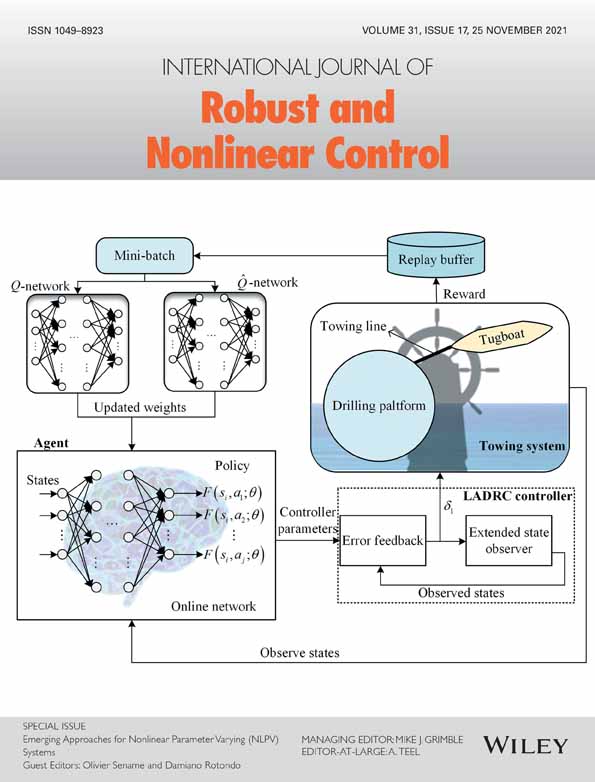Discounted near-optimal regulation of constrained nonlinear systems via generalized value iteration
Funding information: Beijing Natural Science Foundation, JQ19013; National Natural Science Foundation of China, 61773373; 61890930-5; 62021003; National Key Research and Development Project, 2018YFC1900800-5
Abstract
In this article, a generalized value iteration algorithm is developed to address the discounted near-optimal control problem for discrete-time systems with control constraints. The initial cost function is permitted to be an arbitrary positive semi-definite function without being zero. First, a nonquadratic performance functional is utilized to overcome the challenge caused by saturating actuators. Then, the monotonicity and convergence of the iterative cost function sequence with the discount factor are analyzed. For facilitating the implementation of the iterative algorithm, two neural networks with Levenberg–Marquardt training algorithm are constructed to approximate the cost function and the control law. Furthermore, the initial control law is obtained by employing the fixed point iteration approach. Finally, two simulation examples are provided to validate the feasibility of the present strategy. It is emphasized that the established control laws are successfully constrained for randomly given initial state vectors.
CONFLICT OF INTEREST
The authors declare that there is no potential conflict of interest.
Open Research
DATA AVAILABILITY STATEMENT
Data sharing is not applicable to this article as no new data were created or analyzed in this study.



 codesign for uncertain nonlinear control systems based on policy iteration method
codesign for uncertain nonlinear control systems based on policy iteration method
